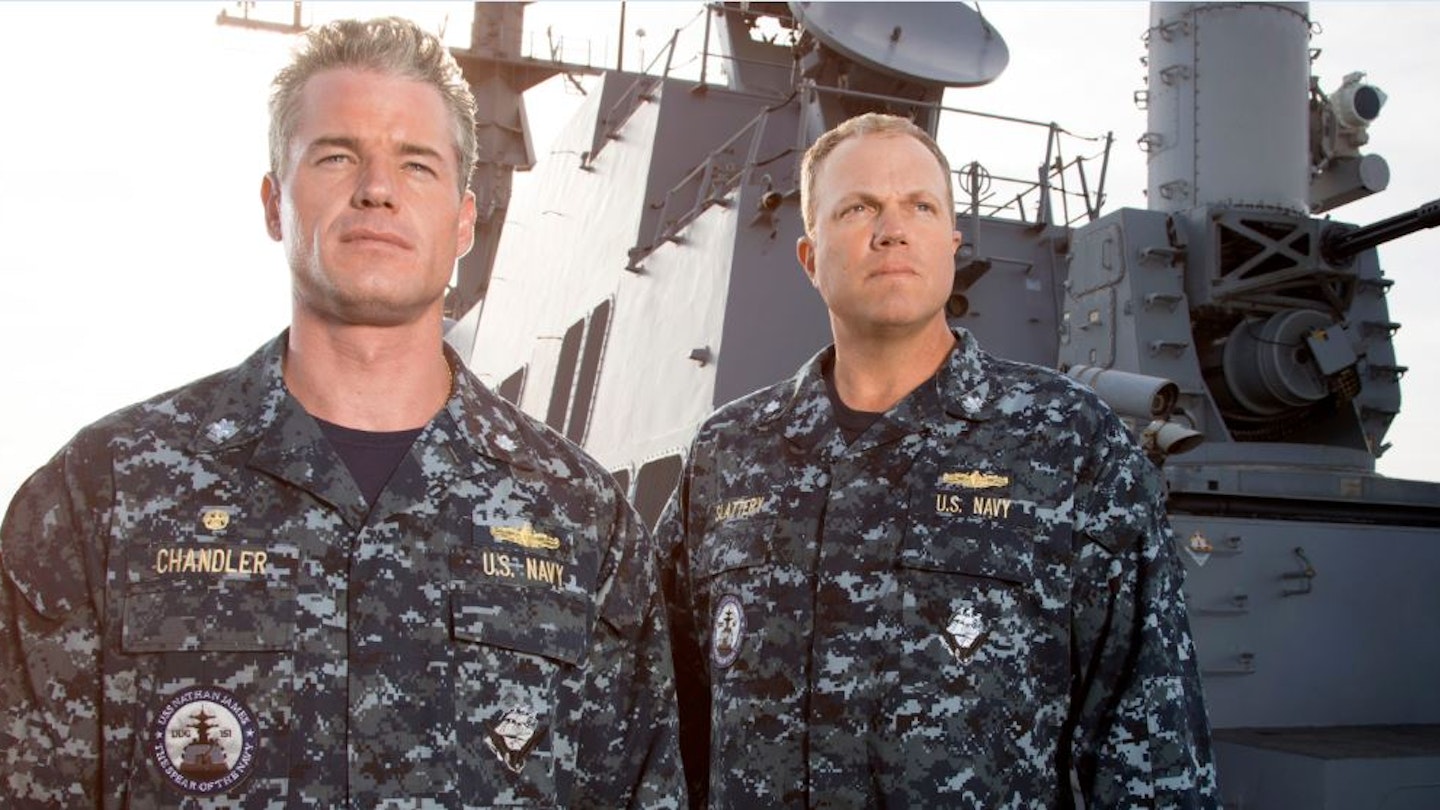The Last Ship, in the midst of its third season, focuses on the aftermath of a global pandemic that has destroyed eighty-percent of the world's population. The USS Nathan James, a Navy destroyer, is tasked with finding a cure, which they do and bring back home. What follows, however, is a look at a devastated America that is trying to rebuild itself, while the Nathan James, under the command of Captain Tom Chandler (Eric Dane), must navigate what has become a new world, with new enemies rising from the ashes of the old.
In the following exclusive interview, executive producers Hank Steinberg and Steven Kane look back at the origins of the show and its evolution over the past three years.
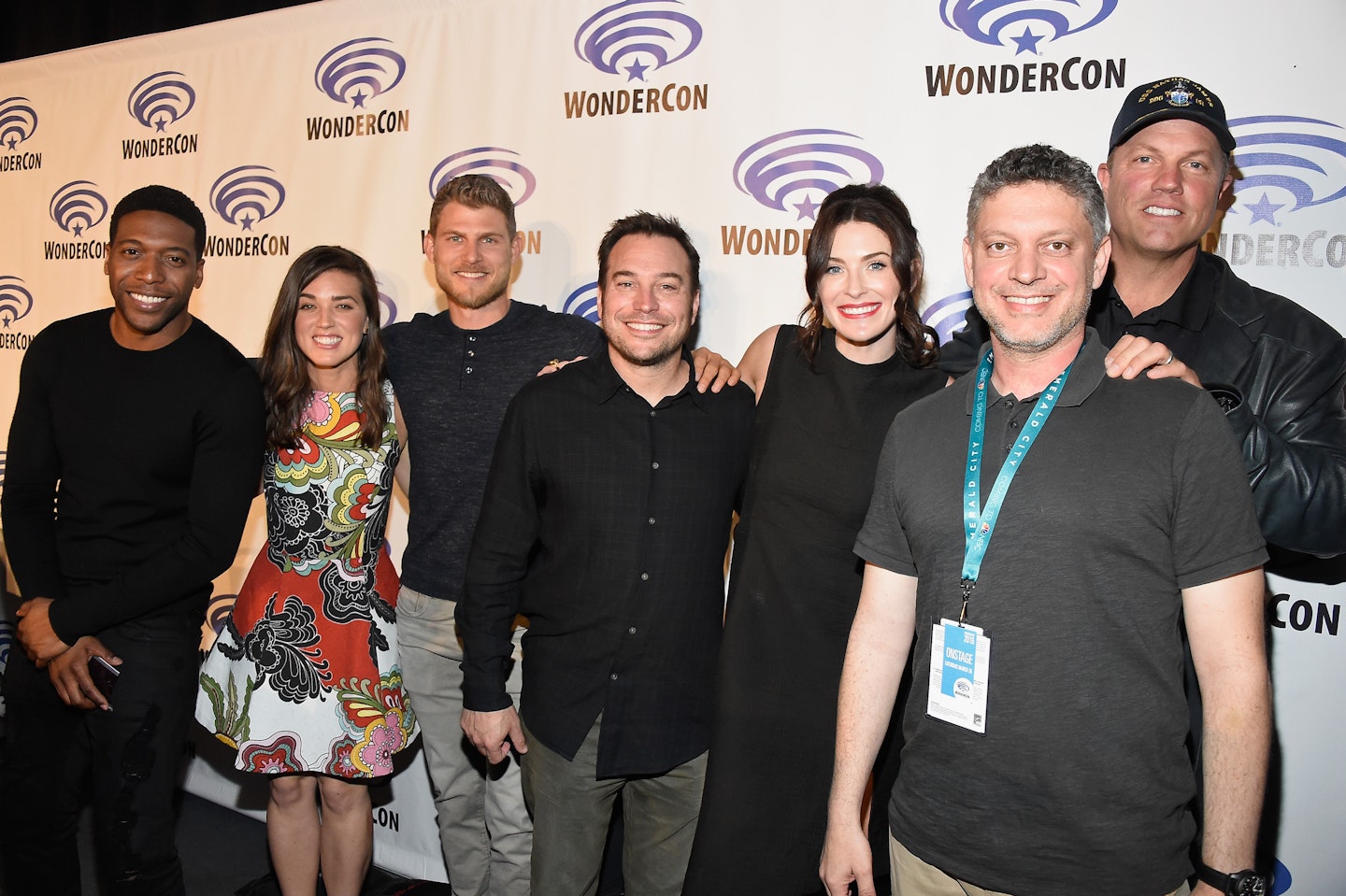
Hank Steinberg (executive producer/co-creator): For me it began with my agent saying there was an interesting project set up at TNT that was based on this book The Last Ship, and that Michael Bay and his production team were attached to it. I took a look at the book and thought it was a really interesting concept. Even as a kid I've been really interested in the Nevil Shute book On The Beach. I've really been interested in how people react in an apocalypse or an extremist situation; I was fascinated by the psychology of that subject matter.
I met with Bay and the guys and as we talked, I recognized that it would have to be updated in some way, because it was a Cold War book written in the late '80s and it was about a nuclear holocaust. Then when I did the research, it would seem that even the worst possible nuclear holocaust would wipe out forty to fifty percent of the population, but there would be a lot of people in pockets of remote regions that would still be alive. I realized that we had to change the concept a little bit, so at that point I called up my old college roommate, Steven Kane, who was just coming off of another show for TNT, and I said, "Hey, would you like to work together on this?"
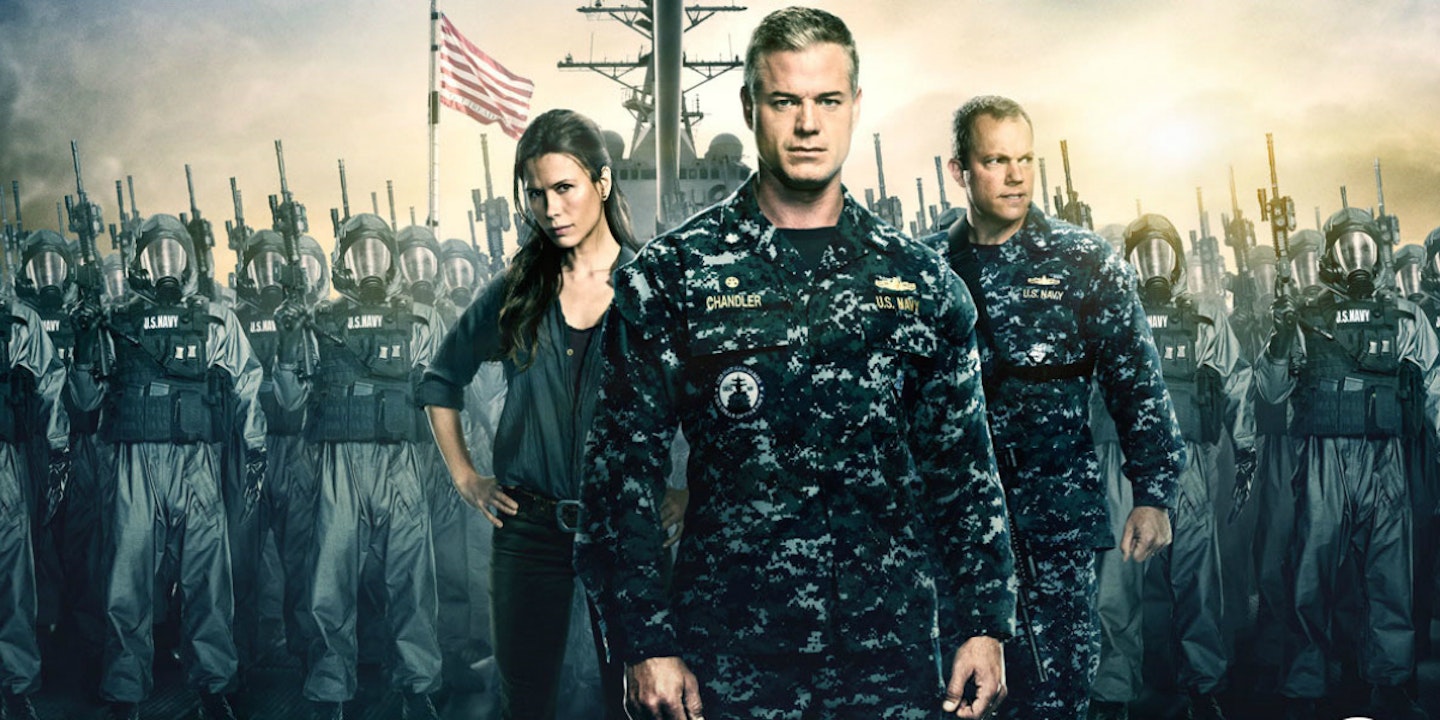
Steven Kane (executive producer/co-creator): By the time I got involved, Bay's producers were looking for a writer or writers to adapt the William Brinkley novel. Hank, who I've known since the first day of college, brought it to me. We listened to the book together and tried to figure out what the show was. For me, I was totally drawn to the idea of a crew and Navy ship being the key to Earth's survival. The Navy trains themselves to take on all enemies and we wanted to provide a great test of what they could do. But as much as I admired the book, there were two things I wanted to change, which everyone was in agreement on. It was about a nuclear war with the Soviet Union. I wanted it to be more up to date and, really, for me it comes down to what scares me most. I'm certainly scared of nukes, but viruses are these invisible killers that spread across the world to sicken or kill millions of people. That sort of thing felt, to me, very of the moment.
Steinberg: At the same time this was being developed, we were having lots of scares about this flu and that flu, and Ebola was in the news. The great thing about this idea is that when you say, "There's a virus," there must be a cure, which would give our heroes something to aspire towards. Something to actively do as opposed to just surviving. The book was really a very psychological, existential look at what it means to survive when there's almost nobody left in the world. We have those elements in the show, but what we really had was the propulsive element of the race against the clock to find the cure, to get the cure out there, to save people, to save the world, then rebuild the world. I think that's what gives the show its legs.
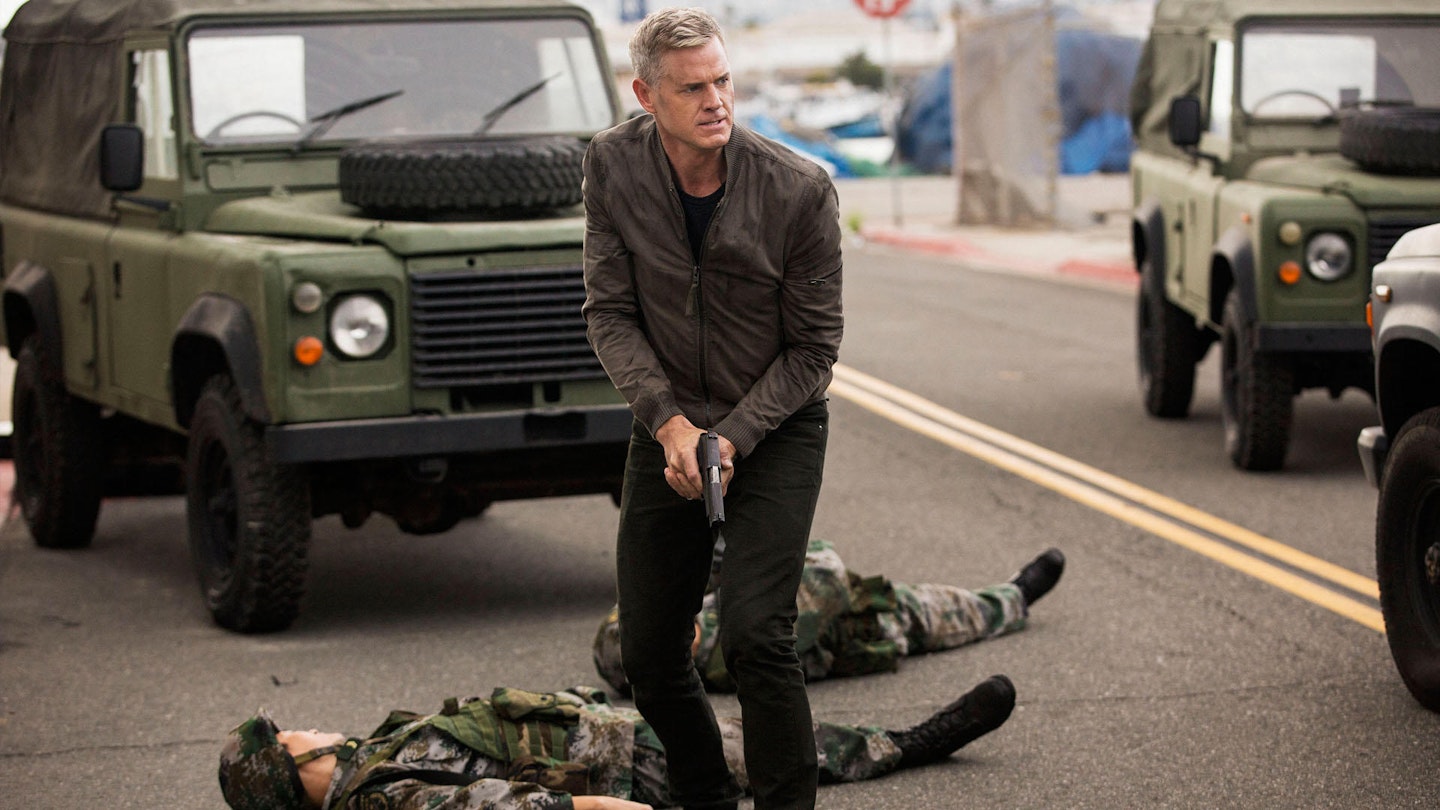
Kane: I'd been doing research on viruses for other projects and I actually met some people at USC that have a center for studying terrorism events. It's a Homeland Security special center they designed at USC where they study economic impacts of terrorism events, how to mitigate them, how to deal with them. One of the studies was about preparedness for naturally occurring outbreaks of Avian Flu or biological attacks. How people make decisions during those events. The other thing about the book is that it was nihilistic and hopeless. In the book they were just looking for a place to land that didn't have nuclear fallout. They were going to try to repopulate the Earth. That, for me, felt like a terrific book but not an ongoing series. We wanted to focus on the hope rather than despair.
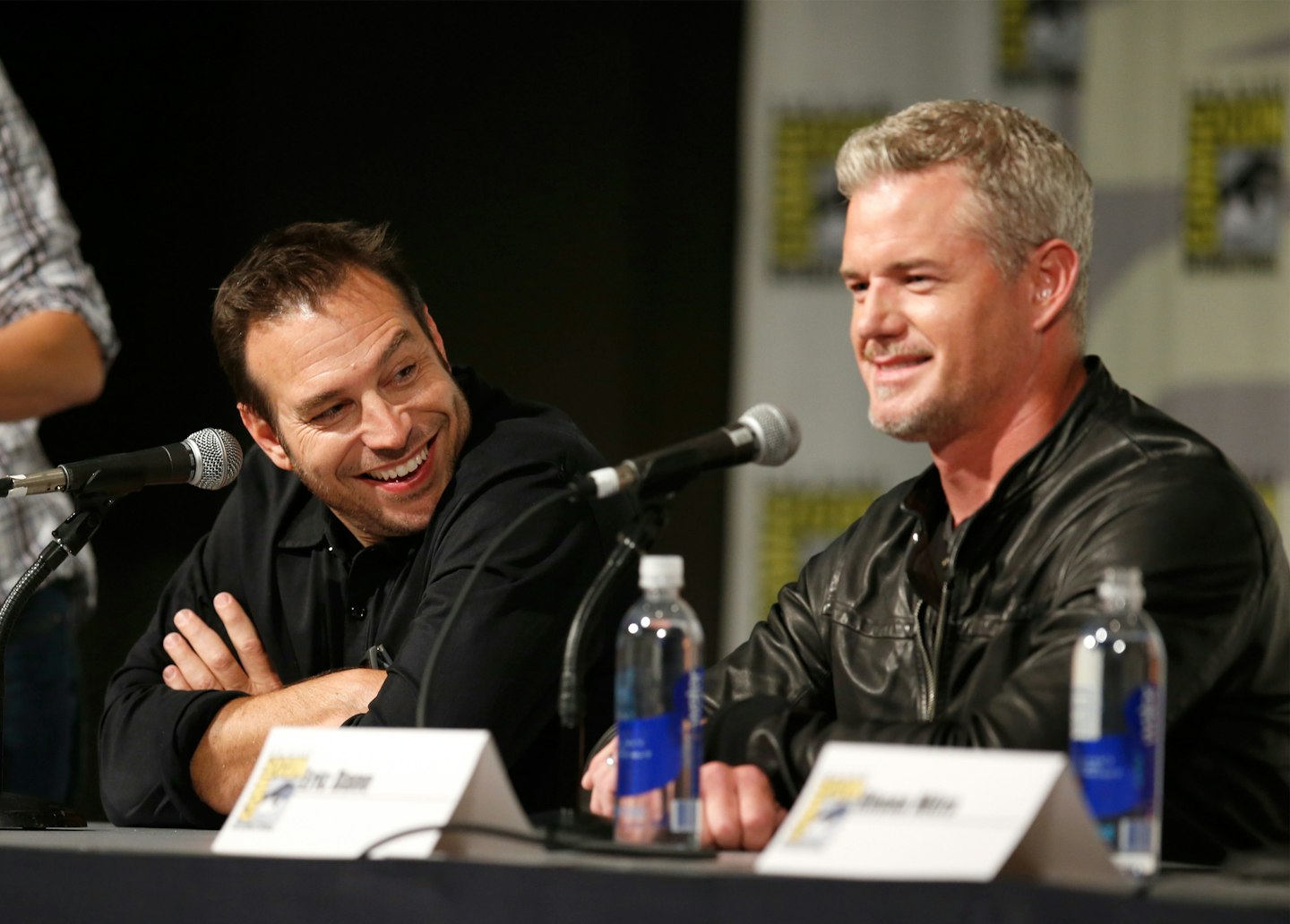
Steinberg: The first season was about stay alive, find the cure, come home with it. The second season was, "Okay, we're home. Now what is home? How are we going to get the cure out to people?" Now there are different kinds of enemies at home that want to stop us for various reasons. Then season three really becomes about, "We've kind of got America in order, what's the rest of the world looking like? What are going to be the geopolitical challenges? What are going to be the existential challenges? What's the world look like?" The fun thing about this show is it really has a lot of legs, you know? It's very easy to see how it could go seven, eight, nine seasons.
Kane: We also wanted this show to be a meditation in some ways on leadership. For me the idea that Chandler would be put in this situation and his crew would be put in a situation like this... This nightmare scenario forced them to draw on all their skills, education, training and personal mettle. That sounded like a compelling drama, and a perfect storm, if you will. Hank and I came up with a new take on it, a pitch, went back to Michael Wright and he was just super excited by it and a great cheerleader. To this day the current administration of TNT is equally passionate (thankfully) for the show. So it just fell into place. Then, of course, it just became a question of how do we film this thing? How do we get onto a Navy destroyer and tell this story?
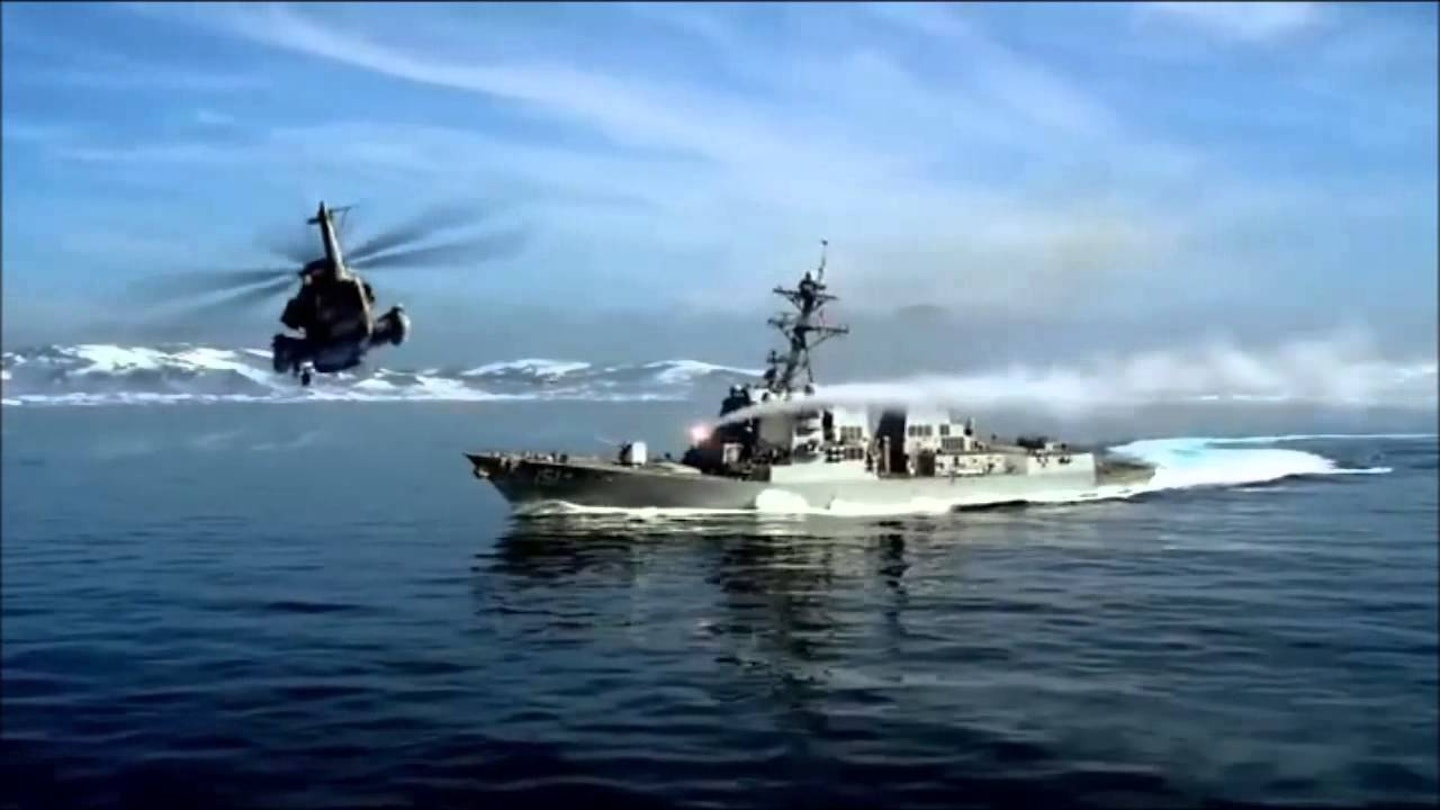
Which is where Michael Bay came in, because he had a strong relationship with the Department Of Defense and the Navy (thank you Top Gun and Pearl Harbor). Coincidentally, at that time the Navy was looking for ways to up their profile a bit. The idea that the show would be about the service warfare community (essentially life on a ship) was appealing to them as well, due to the fact it's an area that doesn't usually get a great deal of attention.
Kane: Because our story was really about heroes, they were confident as well that we weren't going to go in there and use our tax payer dollar assets and make them look bad. We came into a great mutual relationship with them where we never asked them to do anything they weren't already doing. They just let us walk on the ships as they were doing their business; we never interfered with their government work. They gave us the access we needed, which was amazing. We shot the pilot in the fall of 2012 and spent the entire time on a Navy ship, the USS Halsey. Aside from some stuff we did on the snow for the arctic stuff and in Egypt, which we shot actually in San Diego, it was all there.
Steinberg: We go to shoot a few times a year down at San Diego naval base on their ship, or one of a variety of ships they've let us use for the Nathan James. We interact and collaborate with them in terms of a lot of things, like making sure we get the language right, the weapons right, the culture right. At the same time, the more we talk to them, the more they realize that we can't make these people cardboard cutouts, square-jawed, flawless heroes. We have to be able to put them under pressure and have them make mistakes and have their own flawed humanity. I feel like we've been really successful with that, and they tend to understand that Tom Chandler doesn't have to be flattering in order for him to still be heroic.
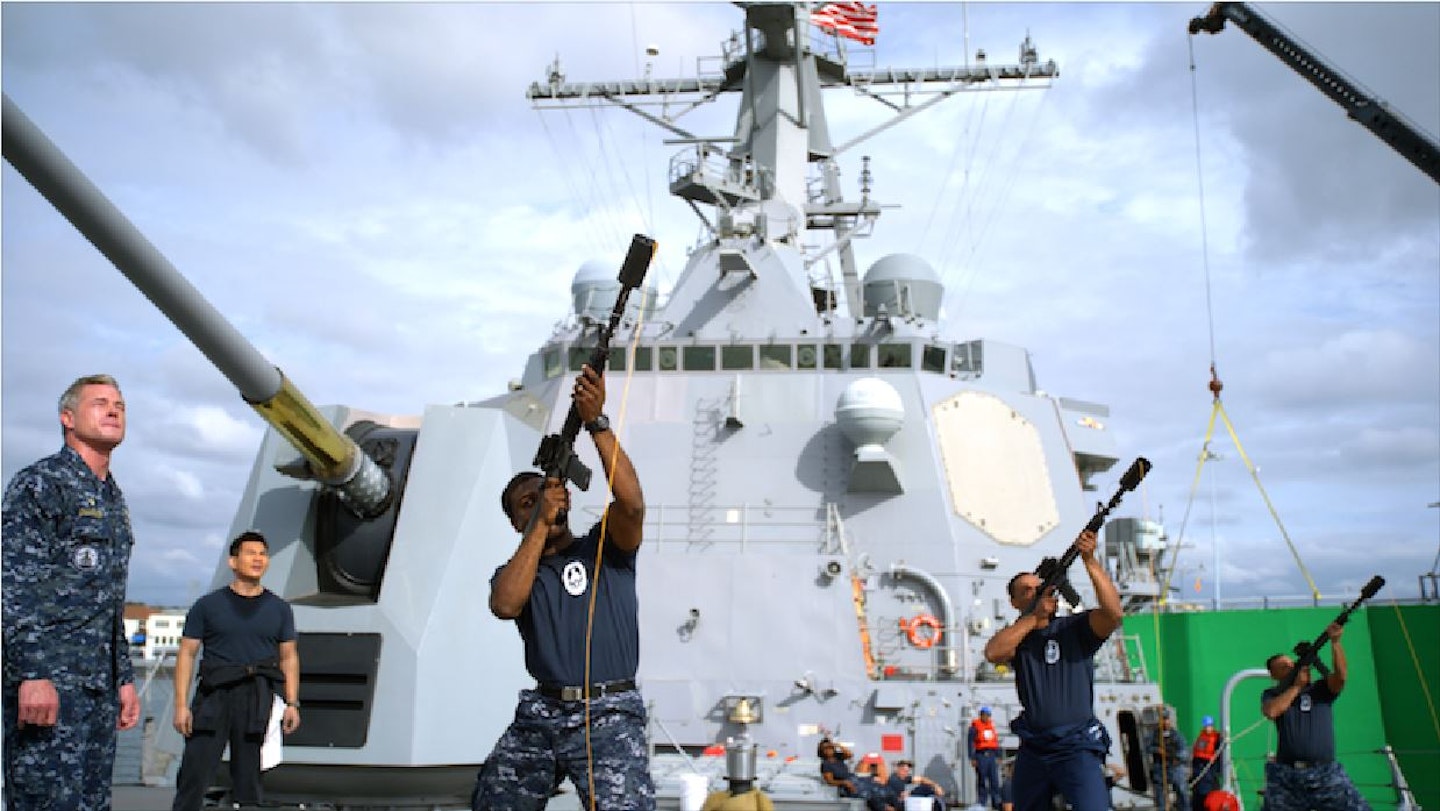
Kane: They knew that we were not going to show Captain Tom Chandler bringing prostitutes on the ship and drugs and doing illegal arms deals with the Iranians. That's just not what the show is about, nor is it, by the way, what the Navy is about. We talked to them and said, "Look, guys, we are telling a dramatic story here, so sometimes we'll make mistakes of omission and sometimes we'll make mistakes of commission, because we want to make it more dramatic. Sometimes the real world of Navy life is not as dramatic as what we want. It's an apocalyptic show. When it's all said and done, we're not making a commercial for the Navy, because no one's going to watch that. They're going to quickly see through it and see that this is just a big ad campaign and they're going to get bored and turn it off. What we're going to do is show these people as human beings trying their best and trying their best to uphold the values of the Navy. They're going to overcome their obstacles and, as a result, those core values, having been tested by fire, will now be stronger.
Steinberg: And we've had Chandler go to some pretty dark places. He's going to some even darker places this season where the strain and toll of everything he's been asked to do just continues to pile on him. It's been a fruitful collaboration and there's always a bit of give and take, but we're really happy to have the Navy involved, because if we don't understand what their culture is, then we can't portray and depict that culture well. And then we can't actually depict the character conflicts well, because the characters live in the culture that they've indoctrinated themselves into for fifteen or eighteen or twenty years. When the characters make a mistake or do something flawed, that exists within a culture that they care about and a system that they care about. We have to know why the characters value it so that when they break it or do something wrong, that they feel it themselves and react accordingly and responsibly.

What may surprise viewers is that ever since the pilot, there has actually been very little footage shot within a U.S. Navy destroyer, the demands of production needing a more practical solution.
Kane: We realized that just getting onto the base and getting through security and dealing with all of the elements of a real, active, working Navy base, much less a ship, is just too hard. That ship is also very tight quarters and getting down to certain level you lose so much time and it's just not practical. Also, it's too much to ask of the Navy. We made a decision and built these amazing sets. Our team went through every nook and cranny of a real ship and they just copied it to a T. We built basically all the internal sets. The bridge, the combat center, the mess decks where they eat, the state rooms, the engine rooms... the bathrooms. Now when we go to San Diego, we just go to shoot on the outside of the ship; the skin of the ship. We shoot the stuff that really gives it its sex apeal, like the big guns and the super structure of the ship. You really get a sense that you're actually on the ship. We've had Navy folks from junior officers all the way up to enlisted men walk through our ship and they just can't believe how accurate we've made it.
The Last Ship hit the airwaves at a time when other pandemic dramas like Helix, 12 Monkeys, The Strain and Containment were arriving or would be. Which raises the question of the appeal of something so horrifying to viewing audiences.
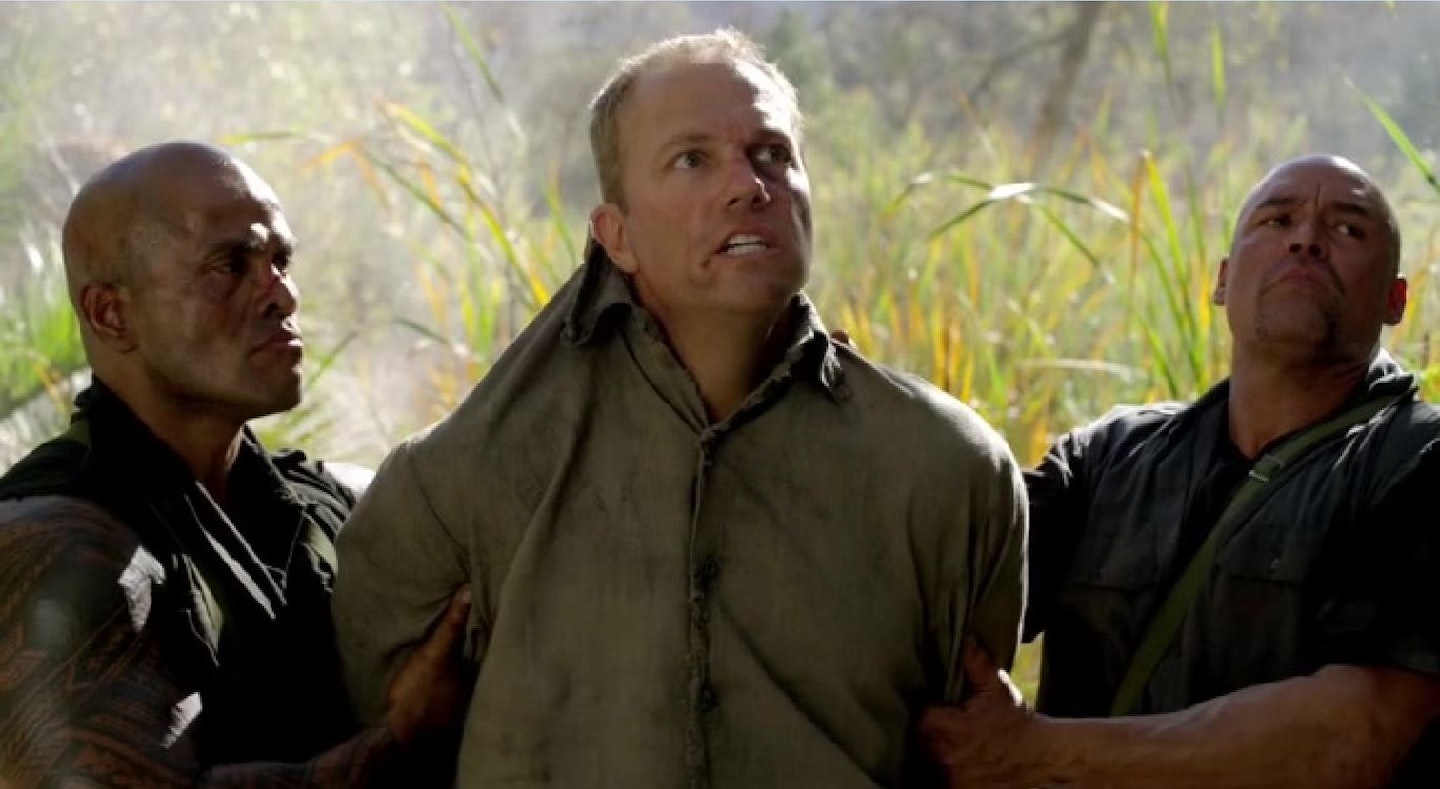
Steinberg: People are sort of attracted to the things that the're afraid of in some ways, but they can experience their fears vicariously by sitting comfortably on their couch and watching characters on the screen you know go through them. I think people are afraid of these viruses that we keep hearing about and it's a fear that's been in our culture for hundreds if not thousands of years. It's a fear of the unknown, the invisible boogie man. The virus is the boogie man that you can't see coming, but it can kill you. I also think people are attracted to this idea of being reduced once again to our most basic elements and having the characters be challenged where the artifice of civilization is stripped away. It reduces us back to a more elemental, more animalistic, state, and it becomes a question of keeping your morality and what it means to be human versus animalistic survival. Everyone wonders, "How would I do in that situation?"
Kane: We weren't doing post-apocalyptic, we were doing apocalyptic. It's happening now. In the second season we dealt with a lot of things like how are people dealing with it while it's happening? They're still hiding from each other, still in fear of the virus hitting them where they live. How does the infrastructure run? How does the government run? You need people to run power plants and water treatment centers and highways and traffic lights and police and fire, and suddenly everyone's hiding from each other. So how do people organize themselves? How do they behave themselves?
We read fiction and non-fiction material about real case studies. You saw a little bit of it in modern day Africa when Ebola hit. We tried to figure out how human beings react to this kind of stress; this kind of life or death thing? We extrapolated and found stories within that. It's our thought piece, if you will, our imagination of what it could possibly look like. We wanted to keep the show grounded in reality, so we tried to find the most dramatic way to show the realistic version of how the world could look after this kind of event.
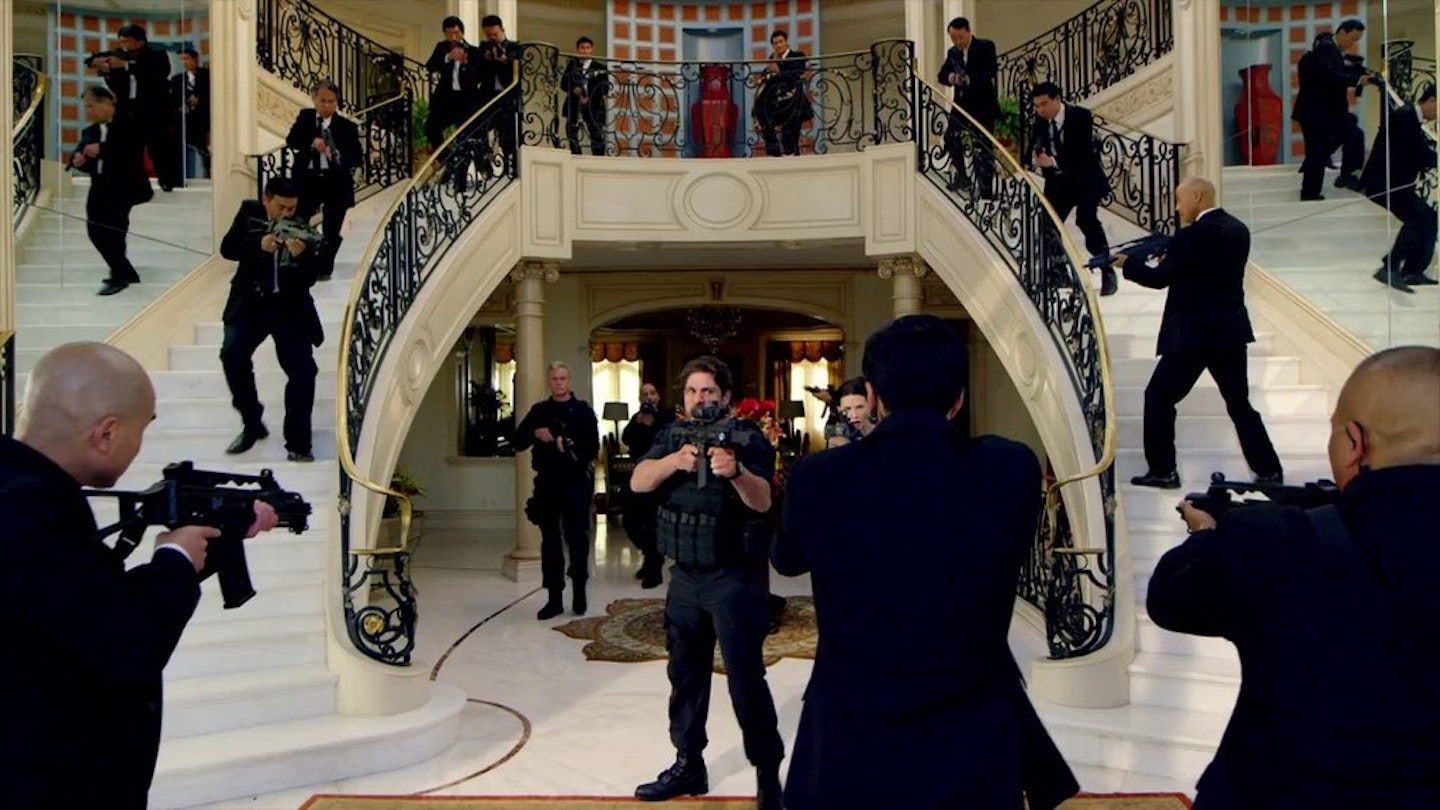
Steinberg: In the DNA of this show you've got a kind of order versus chaos. There's the order of that ship and everybody follows the same culture, the same tune, and everywhere they get off the ship it's complete chaos. They never know what they're going to expect or what they're going to find. That exposes that we think we have an ordered society and civilzation, and we're afraid of the disorder that exists on the fringes of it. With terrorism, people don't know if they're safe walking into a restaurant. I think that we're bringing those things out of the fringes and into the main context of the story. We're dealing, thematically through the seasons, with different issues about tribalism versus collectivism. Season three has a lot to do with American isolationism versus being a global superpower and how much we use that power to affect change in the outside. Chandler and the team go to Asia very far away from the troubles at home and there are a lot of questions about whether or not or why use their resources this way, given they're still trying to rebuild the country. But there are big things in Asia that have to be dealt with.
Kane: The show began very isolated with the crew of the ship on the ship with really no idea of what's going on around the world. For them, it's really about staying alive long enough to find the cure; to bring it home. That's really the first season. Second season is, we have the cure. It works. How do we mass produce it? How do we distribute it and how do we do it in a country that's so fractured, so wounded, so sick, while also fighting off this cult of immunes who don't want us to be here? It's really the story of the ship traveling along the coastline of America where there's echoes of post-Civil War reconstruction; echoes of the founding fathers and how they organize this chaos of a land. For them, it's really about convincing America that we're still here, that there is actually hope, that not only is the cure here, but there is the Navy and there is a president, and we can start to rebuild and return to what we had before all of this started.
Now, if you look at season three, it's a continuation of that, where we've brought the cure home and we've spread it contagiously, but it's back to the idea of how do you govern yourselves in this new world where ninety-five percent of the population is already dead? How do you organize yourselves politically? How do you deliver goods and services? How do you work? Where do you work? What is the currency? What does the constitution look like? What does the government look like? All of these big questions about really forming a society are happening at the same time.
Steinberg: Capitalism versus socialism in rebuilding America is something that comes up. I think a lot of people are talking about it now with Bernie Sanders and even Donald Trump; that there's something not quite right about how our country is performing and dealing with itself economically. That ends up a big part of what's happening this season in that the president is trying to ration supplies and the other people in power in the different territories want to have more of a free market system which they think is more American. So there is tension there. We are dealing with contemporary issues in a different kind of prism.
Kane: Meanwhile, Chandler is looked at as this sort of demi-god who's brought home the cure. While this is going on at home, you have this crisis in Asia and the cure is not getting to the people who need it. There may be a strong man rising in China who's using the cure as leverage to control his neighbors, not to mention his doing things that may have contributed to a possible mutation of the virus which would mean we're back to square one. So we're dealing with both an America in its nascent reforming at the same time we're dealing with a global story which keeps the ship at sea dealing with new enemies.
The Last Ship airs on TNT in America and Sky1 in the UK.
